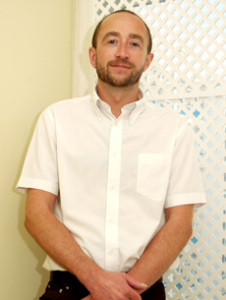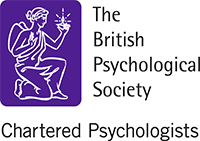Dr Robert Watson
 Hello, I am Dr Robert Watson. I qualified as a Clinical Psychologist in 2001. I worked in the NHS for twelve years in adult mental health and sexual health/HIV services, helping people with a wide range of mental and sexual health problems. I worked to a senior level in the profession, managing services and training and supervising others. Since leaving the NHS, I have set up a successful private practice. I am also an accredited Cognitive Analytic Therapy Supervisor and Therapist, and I have been innovative in applying Cognitive Analytic Therapy (CAT) to the area of Sex Addiction. I have published widely in academic journals and have been involved in writing self-help books and articles; I am co-author of “Living Confidently with HIV: A Self-help guide”. I enjoy and value this work because it makes psychological approaches accessible beyond the traditional consulting room. Since 2013 I have been the Vice Chair for the Association of Cognitive Analytic Therapy, a registered charity that regulates the training and development of CAT in the UK and, in addition, aims through its charitable activities, to promote social inclusion and emotional well-being in society. I am have been offering a specialist CAT service for gay men who are having difficulties around “Chemsex” since 2014. I currently offer web based Cognitive Analytic Therapy and Cognitive Behavioural Therapy using high quality encrypted “Zoom” video conferencing software.
Hello, I am Dr Robert Watson. I qualified as a Clinical Psychologist in 2001. I worked in the NHS for twelve years in adult mental health and sexual health/HIV services, helping people with a wide range of mental and sexual health problems. I worked to a senior level in the profession, managing services and training and supervising others. Since leaving the NHS, I have set up a successful private practice. I am also an accredited Cognitive Analytic Therapy Supervisor and Therapist, and I have been innovative in applying Cognitive Analytic Therapy (CAT) to the area of Sex Addiction. I have published widely in academic journals and have been involved in writing self-help books and articles; I am co-author of “Living Confidently with HIV: A Self-help guide”. I enjoy and value this work because it makes psychological approaches accessible beyond the traditional consulting room. Since 2013 I have been the Vice Chair for the Association of Cognitive Analytic Therapy, a registered charity that regulates the training and development of CAT in the UK and, in addition, aims through its charitable activities, to promote social inclusion and emotional well-being in society. I am have been offering a specialist CAT service for gay men who are having difficulties around “Chemsex” since 2014. I currently offer web based Cognitive Analytic Therapy and Cognitive Behavioural Therapy using high quality encrypted “Zoom” video conferencing software.
My motivation.
I believe that through collaborative therapy, I can help others overcome their difficulties and reduce the stigma and disempowerment associated with mental health problems. I have always been struck in my work by the courage my clients have shown when facing painful and challenging situations. I have also, though my own personal experiences of therapy, found it to be an important vehicle for change.
Philosophy.
The vast majority of people, at some point in their lives, feel stuck or like they can’t cope or develop problems like depression or anxiety. There is still a lot of stigma and shame attached to mental health problems and finding the courage to talk to someone is an important first step to overcoming your problems. Aristotle in ancient Greece wrote about the healing power of the doctor patient relationship. I believe that this still applies today. A warm and trusting therapeutic relationship where you feel safe is the foundation for the work of therapy, enabling the tools and techniques of therapy to work for you.
We have all just had one life and what has happened to us colours how we see ourselves, others and the world. Sometimes this feels obvious and right, but sometimes our patterns of thinking, feeling and acting can be the source of our problems. Therapy can help you understand and change these patterns so that you feel happier and more in control of your life.
My approaches.
I have always taken an integrated approach to my work, drawing on cognitive-behavioural, systemic, and psychodynamic approaches as I believe that no one model of therapy can fit everyone all of the time. I usually work with people in a time-limited way, as I believe this helps mobilise people’s resources for change.
Usually I work with people using Cognitive Analytic Therapy: CAT is an active therapy inviting you to be the observer of your own life and take part in what needs changing. CAT enables you to understand the impact of your life to date and to recognise how the helpful and unhelpful ways you relate to others and to yourself often mirror the helpful and unhelpful aspects of your earlier relationships and childhood experiences. It can be helpful when you feel trapped by patterns of thinking and acting that seem to make things worse rather than better, or when there are familiar ways of feeling and acting with others that have been with you for a long time but are harmful or limiting to you in some way. CAT also attends to how these patterns can be played out in the therapeutic relationship which can provide you with a safe place to understand yourself better.
Qualifications
Doctorate in Clinical Psychology, 2001: University College London
Practitioner Diploma in Cognitive Analytic Therapy, 2010: Association for Cognitive Analytic Therapy


